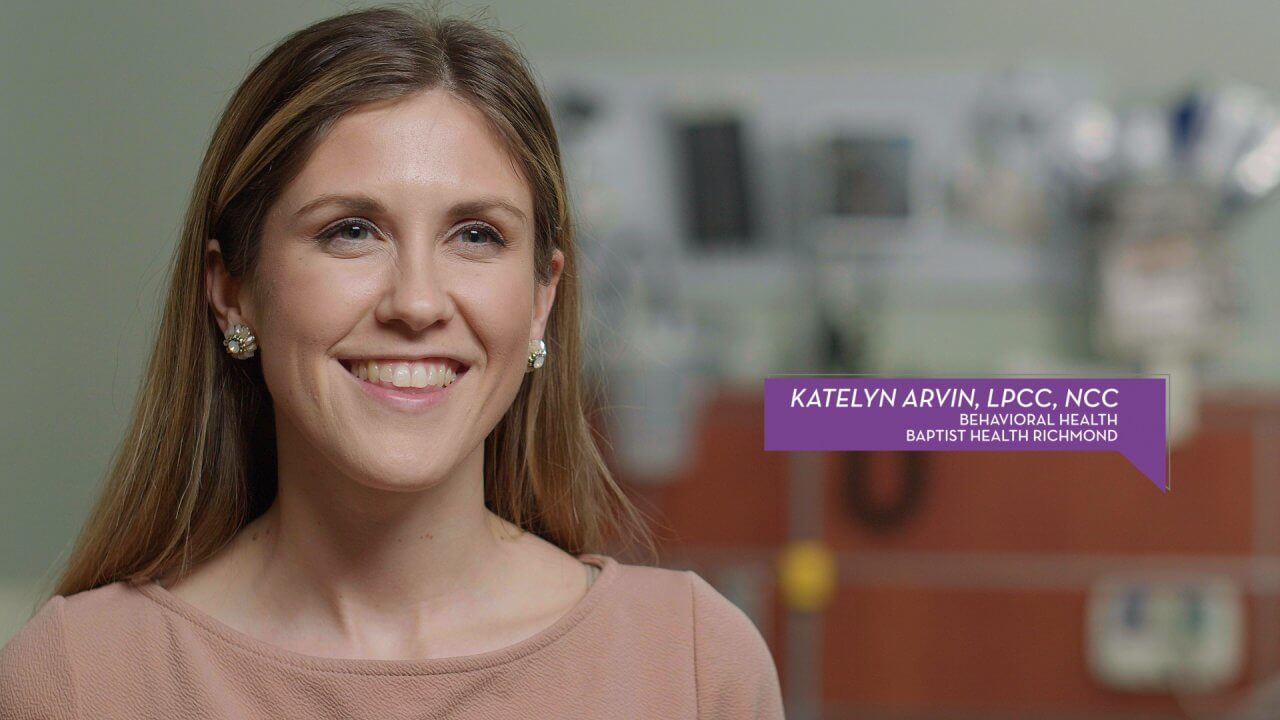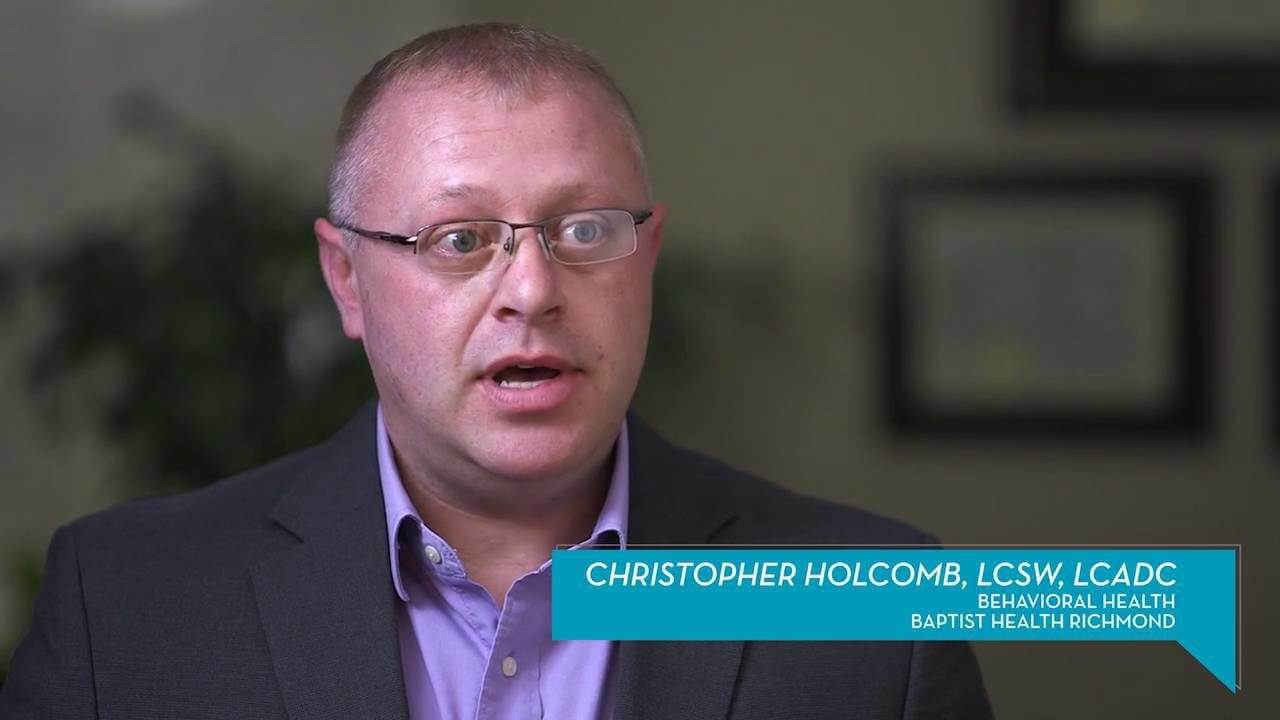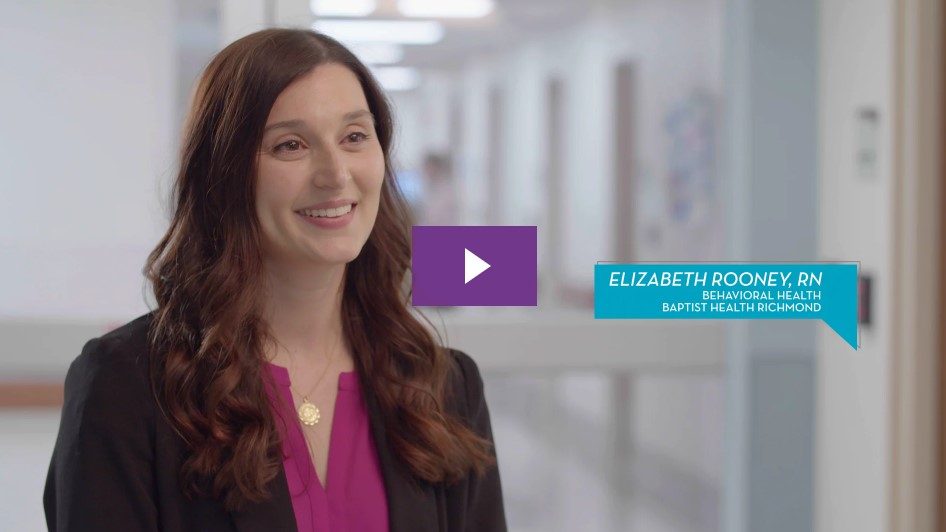Teen Mental Health in Richmond, Kentucky
Baptist Health Richmond: Teen Mental Health in Richmond, Kentucky
Suicide among teens is a leading cause of death. Learn more about Baptist Health’s teen mental health programs, which offers mental health crisis intervention.
Teen Mental Health in Richmond, Kentucky HealthTalks Transcript
Katelyn Arvin, LPCC, NCC, Behavioral Health:
Suicide is the second leading cause of death in teens age 15 all the way up to youth at 24. At Baptist Health Richmond we are here to support that population, and we owe it to our youth to pay attention and help them through.
Signs of distress would be social isolation, withdrawing, hopelessness and a remarkable or notable change in their behavioral patterns. It can be overwhelming to present to the emergency department for a mental health crisis. So, when someone presents to the ER for a mental health crisis assessment, they can anticipate to come in with their loved one. They don’t have to disclose everything right away, they can just say that they’re here to talk to a mental health professional. Then, we will have a behavioral health clinician, a licensed therapist, meet them directly at their bedside.
We’ll do a full evaluation and consultation and work directly with that teen and their family in deciding what recommendations and referrals we make at that time. It’s important when a teen discloses to us that they’re having these feelings of hopelessness that we listen, and we’re attentive and help them understand that this is a temporary feeling and that this, too, will pass. We have to sit with them and get them through, bridge that gap, and help them move through the pain instead of succumbing to it.



